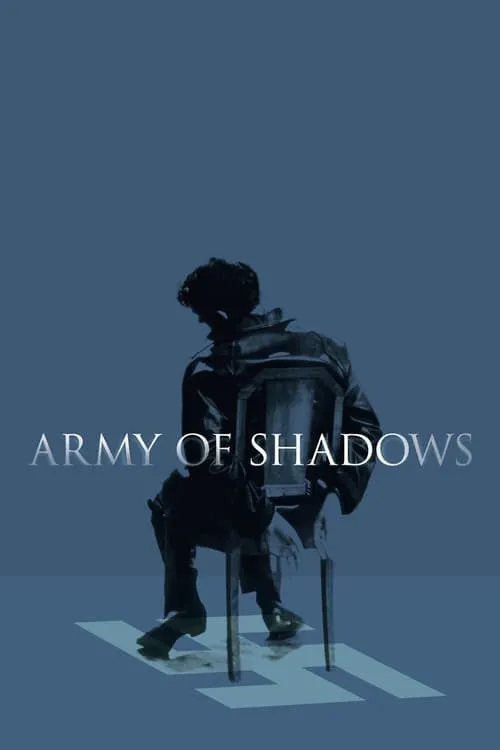Army of Shadows

Intrigue
In a France ravaged by the Nazi occupation, the streets of Marseilles are a warren of secrets and lies, where the very air is thick with the tension of betrayal and the constant struggle for survival. It is in this cauldron of fear and oppression that the protagonist, Philippe Gerbier, a former pilot and leader of the Resistance, finds himself inextricably entangled in a labyrinthine world of espionage and deception. Gerbier's journey begins in a Nazi prison camp, where he is subjected to the utmost cruelty and brutality. Imprisoned for his part in the Resistance, Gerbier is a symbol of resistance against the Nazi occupation, and his very existence poses a threat to the enemy's authority. When the camp is raided by the Nazis, Gerbier is betrayed by an informant within the Resistance, someone who knew of his activities and handed him over to the authorities in exchange for a favor or a promise of reward. The identity of the informant is unknown, but the consequences of their action are dire: Gerbier's capture and brutal treatment at the hands of the Nazis. The initial assault on Gerbier's character is devastating, leaving him broken and vulnerable. His strength and resolve are shaken to their core, and it seems as though the Nazi occupation may ultimately prevail. However, it is in the depths of despair that Gerbier discovers an inner strength and resilience that allows him to defy his captors and escape from the prison camp. Upon his return to Marseilles, Gerbier re-establishes contact with the Resistance, a group of individuals fighting against the Nazi occupation in various ways. Their efforts are clandestine and often fraught with danger, as the slightest miscalculation or slip-up can bring dire consequences. Gerbier knows this only too well, having been betrayed by an informant within his own ranks. He must tread with caution, always mindful of the enemy's presence and the ever-present threat of betrayal. As Gerbier navigates the treacherous landscape of the Resistance, he sets his sights on the informant who had betrayed him. This act of revenge is a personal vendetta, driven by a deep sense of anger and betrayal. Gerbier's actions are a testament to the strength of the human spirit, which can endure even the most extreme forms of cruelty and oppression. His is a tale of survival, of a man who refused to be broken, even in the face of overwhelming odds. However, as Gerbier navigates the labyrinth of Resistance operations, he soon realizes that his pursuit of revenge has become all-consuming. His actions are motivated not by a desire to bring an end to the Nazi occupation, but by a personal need for retribution. This self-obsession clouds his judgment and leads him to make decisions that will have far-reaching consequences. In the midst of this chaos, Gerbier's character evolves, revealing a more complex and nuanced individual. His is no longer the man who emerged from the prison camp, broken and vulnerable. Rather, he has become a leader, a figure of inspiration among his comrades. His unwavering dedication to the cause is a source of strength, and his unshakeable resolve gives hope to those around him. As Gerbier continues his battle against the Nazis, the stakes grow higher. With every operation, the Resistance suffers losses, and the Nazi occupation strengthens its grip on the city. The very existence of the Resistance is under threat, and Gerbier must navigate this delicate web of intrigue to ensure their survival. In the midst of this turmoil, a sense of camaraderie develops among the Resistance fighters. Their struggle against the Nazis becomes a source of solidarity, a shared experience that brings them together in a way that transcends their personal struggles. Gerbier, in particular, comes to embody this spirit, his leadership and unwavering commitment inspiring his comrades to continue their fight. In Army of Shadows, Jean-Pierre Melville crafts a cinematic epic that explores the complexities of resistance, the personal cost of revolution, and the human spirit's capacity for resilience and courage. Through the character of Philippe Gerbier, Melville delves into the inner workings of the human mind, revealing a man driven by a deep sense of loyalty and duty. The film is a testament to the power of resistance, a tribute to those who refused to be silenced in the face of oppression. In its portrayal of a France torn apart by occupation and resistance, Army of Shadows stands as a powerful reminder of the enduring human spirit, which, even in the darkest of times, continues to resist, to hope, and to fight.
Critiques
Recommandations




